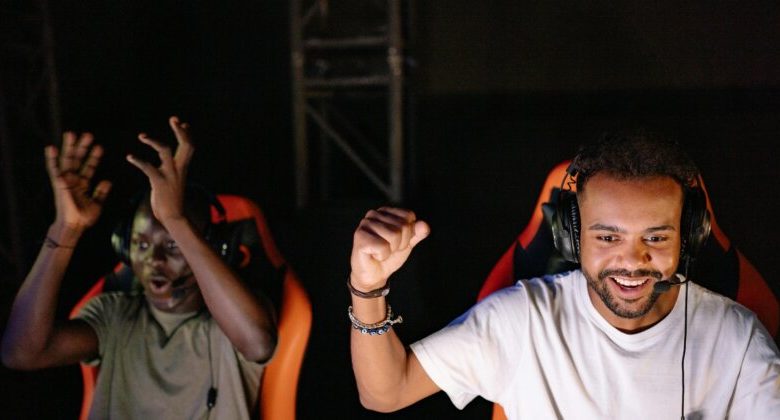How Online Gaming Is Creating New Income Streams

The digital revolution has rewritten the rules of earning a living. For individuals from underserved and minority communities especially, the surge in online platforms has sparked a new wave of financial opportunity—one that blends passion with potential income. Nowhere is this more evident than in the world of online gaming. From monetizing gameplay to leveraging casino platforms for economic participation, the gaming space is no longer just entertainment. It is a new frontier for side hustles, digital entrepreneurship, and entry into fast-growing economies—making the question not whether people are playing, but how they are profiting.
The Shift from Leisure to Livelihood
The transformation of online gaming into an income-generating model marks a cultural shift. What was once reserved for downtime or after-school fun has evolved into an ecosystem where players earn not just recognition, but revenue. For many, especially within marginalized communities lacking access to traditional economic pipelines, gaming has emerged as a viable entry point into the digital workforce. Platforms like Twitch, YouTube Gaming, and Facebook Gaming allow creators to monetize through ads, donations, and subscriptions, giving rise to a generation that earns while they entertain.
Game Streaming as Digital Entrepreneurship
For those who command presence on camera and know how to keep audiences engaged, game streaming has become a legitimate entrepreneurial path. Some streamers, including individuals from lower-income backgrounds, have built loyal followings and lucrative subscriber bases. Monetization models vary—some earn through affiliate links, others through merchandise, Patreon support, or exclusive content access. With minimal startup costs and the potential for high returns, streaming provides a scalable side hustle for gamers aiming to turn passion into profit.
E-Sports and Competitive Earnings
E-sports continues to grow as a multi-billion-dollar industry with entry points expanding across skill levels. Aspiring players from underserved communities often view competitive gaming as a path to recognition and financial independence. Tournaments like EVO, DreamHack, and ESL offer cash prizes ranging from hundreds to millions, depending on the title and scale. Additionally, platforms like Battlefy and Toornament allow casual players to participate in skill-based contests that provide a financial boost—and potential gateway to larger circuits.
Casual Gaming and the Rise of Online Casino Participation
While the professional e-sports track is not for everyone, casual gamers are also discovering income potential in online casino-style games. The barrier to entry is low: no need for high-end gear or elite gaming skill. These platforms are easy to access, mobile-friendly, and widely available. For individuals juggling other jobs or caregiving responsibilities, this digital convenience makes them an appealing option. Online casino participation is not necessarily about high-stakes gambling—it can be a controlled, supplemental form of digital hustle.
Casual Hustle Economy
While some dive into game streaming or tournaments, others are drawn to the quick-fire thrill of slot sites, which have exploded in popularity thanks to their accessibility and ease of use. In communities where time, mobility, and capital are limited, slot sites offer a potentially profitable outlet requiring only a smartphone and minimal investment. Some users treat it like a side gig—risky, yes, but rewarding for those who know how to play smart. For others, it is an extension of digital entertainment—where financial reward is a bonus rather than a goal.
Autonomy Through Digital Platforms
Control over one’s schedule is an underrated form of empowerment. For communities that have historically lacked autonomy in work environments, digital gaming platforms allow users to define how, when, and where they engage economically. There is no boss, no commute, and no office politics. Whether it is a part-time gig streaming in the evenings, or a couple of hours spent on slot sites or casual games, this new hustle model is about agency. It is an income stream on your terms, in your space, at your pace.
Bridging the Access Gap
Traditional job markets often impose barriers—geographic, educational, or systemic—that disproportionately affect minority populations. Online gaming bypasses many of those limitations. You do not need a college degree to launch a Twitch channel. You do not need corporate connections to compete in a Fortnite tournament. You do not need a résumé to succeed on slot sites. With only a device, an internet connection, and a willingness to engage, people from all backgrounds can tap into these platforms, opening doors that were otherwise shut.
Risks, Regulation, and Digital Literacy
No hustle is without its hazards. Online gaming, especially where money is involved, requires education and awareness. Issues like addiction, lack of regulation, and digital fraud are real concerns. Platforms must ensure transparency, while users need resources on budgeting, time management, and responsible gaming practices. For those turning to slot sites or casino platforms, understanding odds, limits, and risk management is crucial. With digital literacy, individuals can treat online gaming not as a gamble, but as a strategy.
Gaming as a Tool for Economic Inclusion
Gaming offers a rare intersection where skill, time, and tech can translate into dollars. For communities historically shut out from tech-driven wealth creation, online gaming provides a unique on-ramp. It is not about becoming the next global gaming superstar—it is about leveraging the tools available today for financial advancement. Whether it is a stream, a tournament, or even time on slot sites, participation in this space signals a new way forward—where income is increasingly democratized and accessible.
Building Pathways to Fair Play
As online gaming continues to grow, so must the efforts to ensure equity and access. That means improving broadband access in rural or urban low-income areas, providing educational resources on monetization, and creating mentorship networks for aspiring gamers. The next generation of digital hustlers should not just play games—they should shape the platforms, the policies, and the profits. Ensuring everyone has a fair shot at winning means designing systems that value inclusion as much as innovation.
The Future of Hustling in a Gamified World
The lines between play and productivity continue to blur. Gaming is no longer a time-waster—it is a training ground, a revenue stream, a social network, and a job market. As more people join the ranks of digital hustlers, the ecosystem will evolve: more platforms, more monetization models, more opportunity. For underserved and minority communities, this is more than a trend—it is a lifeline. With the right safeguards and support systems, the online gaming world will not only entertain—it will empower.




